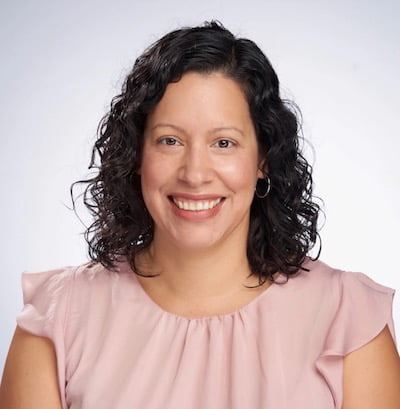City of LA will invest up to $30 million in job training and expedited process to remove class members from gang injunctions
LOS ANGELES, MARCH 16, 2016—Nearly 6,000 Angelenos whose rights were violated through the creation and enforcement of 26 gang injunctions with unconstitutional curfew provisions reached a sweeping and historic settlement today with the City of Los Angeles. The federal class action lawsuit targeted unconstitutionally vague language in the injunctions regarding curfews, which allowed for discriminatory and arbitrary harassment that violated the rights of individuals in injunction neighborhoods—who were disproportionally black or Latino—by keeping them from being able to visit with their families, pursue job opportunities, and advance their education and career skills. The class was represented by Olu K. Orange, Esq., Hadsell Stormer & Renick LLP and Public Counsel.
The City of LA’s agreement to settle Rodriguez et al. v. City of Los Angeles [Case # CV 11-01135 DMG (JEMx)] will bring much-needed investments in job-training programs that will help those affected by the injunctions develop their professional skills and enhance their ability to enter the workforce. The settlement will also streamline and pave the way for individuals, many of whom were wrongly included on the injunctions, to be removed from the list, so that they would no longer be subject to the injunctions. Key provisions include:
- A $30 million investment in job training and apprenticeships over the next four years, available to class members and transferrable to a sibling, parent, child or spouse; and
- An expedited process to be removed from the gang injunction list by the courts, for those who should never have been subject to the injunction or should no longer be subject to it, including access to pro bono legal counsel.
“Gang injunction curfews turned the City of Los Angeles into a Jim Crow era ‘Sundown Town’—forcing several thousand black and brown residents indoors on a nightly basis,” said Olu K. Orange, Esq. “These individuals are part of our community, and this settlement is a step by City leaders toward showing them that their lives do matter.”
“This is taking an injustice that never should have happened and turning it into an opportunity to start over,” said Anne Richardson, directing attorney of Public Counsel’s Consumer Law Project. “The settlement will provide a huge benefit to the L.A. economy through job services and education, and it will direct help to people who were marginalized and stigmatized, some of them because of one mistake, and others who never should have been on the list in the first place. Most of them had their lives tragically turned upside down for years.”
The case was filed in response to the 2009 arrests of Christian Rodriguez and Alberto Cazarez at the community center they helped build in the Mar Vista Gardens housing project. The two had been labeled by the LAPD as gang members even though they both received Affordable Housing Management Association college scholarships based upon excellent academics. Because they lived in Mar Vista Gardens, as soon as they walked out their front doors, they were in an injunction zone. They were arrested for violating the 10 p.m. curfew imposed by the Culver City Boys gang injunction; however, at the time the two were arrested, the LAPD knew that the curfews had already been declared unconstitutional by the California courts in 2007.
In March 2015, Judge Dolly Gee ruled that the City of Los Angeles had violated the constitutional rights of plaintiffs in the case by enforcing the curfew provision. Judge Gee certified a federal class of nearly 6,000 members, with Rodriguez and Cazarez as the class representatives. The class alleged that the curfew provision resulted in discriminatory and arbitrary harassment of individuals, mainly black or Latino, who lived in injunction neighborhoods.
“Gang injunctions are a form of psychological abuse on a whole generation of young people of color,” said Rodriguez, who is now trained as an emergency management technician (EMT). “Because I was wrongly labeled as a gang member, I couldn’t even be outside helping my mom with the groceries at night. I got involved in this case to help others who like me, did nothing wrong but unjustly live in constant fear of doing something that might be perceived by a member of LAPD as a violation. I want my 2-year-old daughter to grow up without that fear. I want her to have a sense of herself that doesn’t limit her and to know that she can achieve whatever she wants.”
“Too many Angelenos who did nothing wrong but live in a certain zip code have suffered serious harms—losing custody of their kids, blocked from visiting relatives and from going to work,” said Dan Stormer, partner at Hadsell Stormer & Renick LLP. “This settlement remedies the terrible constitutional violations they’ve suffered, and restores opportunities and job training to some of our most at-risk youth.”
Angelenos who were targets of the discriminatory gang injunctions suffered ongoing harms as a result of the enforcement of the unconstitutionally vague curfew division. As detailed in research by Dr. Edwina Barvosa of University of California – Santa Barbara, the harms include:
- Internalized fear of arbitrary and discriminatory interference in their daily lives, consistent with collective trauma;
- Harms to existing social ties, lost opportunities for unique social experiences, and hindrance of personal social development including the formation of diverse social networks
- Harms from limitations on self-expression and development, including exercise of First Amendment rights and free and full expression of self-identity; and
- Long-term harms, including alteration of life course through curtailment of social experience and social network growth, diminished or lost economic opportunity from limits on social networks and stigma from law enforcement, and continuing effects of collective trauma.
For more information and for a list of gang injunctions affected by the ruling in the case, visit www.gangcase.com.
###






